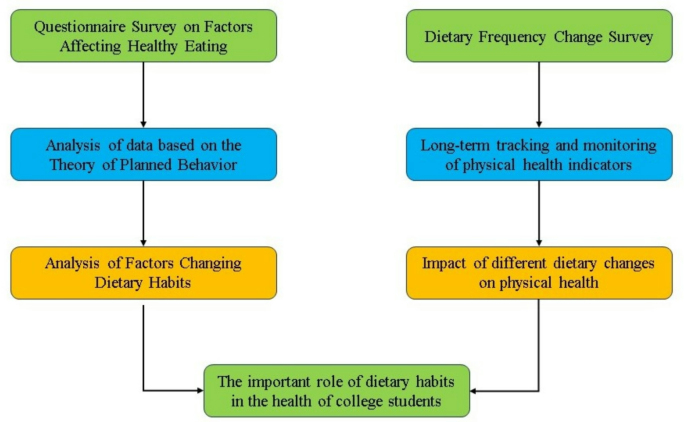How Much Water Should I Drink Every Day?

“How much water should I drink every day?” is one of the most common health questions. Proper hydration supports body temperature regulation, digestion, nutrient transport, and cognitive performance.
Authoritative sources such as the NHS recommend around 6-8 glasses (1.2–2 litres) for women and 2.5-3.5 litres for men per day. Keep in mind that this applies to all liquids, not just water. Activity, climate, and health conditions can increase your needs.
The Eatwell Guide recommends that people should aim to drink 6 to 8 cups or glasses of fluid a day. Water, lower-fat milk and sugar-free drinks, including tea and coffee, all count.
You may need to drink more fluids if you’re:
- Pregnant or breastfeeding
- In a hot environment
- Physically active for long periods
- Ill or recovering from illness
In a healthy body, the brain detects when the body is becoming dehydrated and initiates thirst to stimulate drinking. It also releases a hormone which signals to the kidneys to conserve water by concentrating the urine.
A 2023 study found that being properly hydrated can also slow down ageing and help to avoid chronic conditions such as heart and lung disease.
Benefits of Drinking Enough Water
• Boosts energy & focus – Even mild dehydration can cause tiredness, headaches, and reduced concentration.
• Supports digestion – Water breaks down food and prevents constipation.
• Protects joints & skin – Hydration lubricates joints and keeps skin healthy.
• Regulates body temperature – Sweating and hydration balance keep core temperature stable.
• Maintains kidney health – Adequate water dilutes waste products and reduces kidney stone risk.
For more tips on healthy living, see our Nutrition & Wellness Guide.
Some research suggests that drinking more fluids might actually help with weight management. Brenda Davy, a professor of human nutrition, food and exercise at Virginia Tech, has carried out several studies exploring the link between how much we drink and how much we weigh.
In one of her studies, participants were split into two groups. Both groups followed the same healthy diet for three months, but only one group was told to drink a 500ml glass of water about half an hour before each meal. By the end of the study, the water-drinking group had lost more weight than the others.
Everyone was also encouraged to walk 10,000 steps a day, and interestingly, the group who drank the water were more likely to stick to that goal. Davy thinks that’s because many people are mildly dehydrated without realising it – even just a 1–2% loss of body fluids can make you feel more tired and less motivated.
Weight Loss
Barbara Rolls, a professor of human digestion at Pennsylvania State University, believes that any weight loss linked to drinking water is more likely because people are replacing sugary drinks with it.
“The idea that drinking a big glass of water before meals magically melts away fat isn’t really proven,” she explains. “Water on its own leaves the stomach quite quickly. But if you get more water through foods – like soup or fruit – that water stays in your stomach longer and can help you feel fuller.”
And what about another popular claim – that drinking more water gives you glowing, hydrated skin? The truth is, there isn’t much solid scientific evidence behind that one either. While staying hydrated is definitely good for you, there’s no clear proof that extra water directly improves your complexion or skin moisture.
What Counts Towards Your Daily Fluid Intake?
Tea and Coffee
Both count towards hydration. Moderate caffeine (3–4 cups/day) still hydrates. Green tea provides extra antioxidants.
Milk
Hydrating and nutrient-rich (calcium, protein, vitamins). Milk can outperform water for post-exercise hydration thanks to natural electrolytes.
Fizzy Drinks
Sugary soft drinks add fluids but also sugar and calories, leading to tooth decay and energy crashes. Diet versions hydrate but lack nutritional value.
Sports Drinks
Useful after intense exercise or in hot climates to replace electrolytes. For everyday hydration, water is better.
Juices and Smoothies
Provide vitamins and hydration but are high in natural sugars. Enjoy in moderation.
Alcohol
Alcohol does not count towards hydration. It increases fluid loss and dehydration risk.
How to Tell if You’re Drinking Enough Water
Check your urine colour: pale yellow indicates good hydration; darker colours suggest you need more fluids. Watch for dizziness, dry mouth, fatigue, or headaches.
Can You Drink Too Much Water?
Yes – although rare, excessive water intake in a short time can cause hyponatremia (dangerously low blood sodium). This risk is higher in endurance athletes who overhydrate.
Hyponatremia is a condition that happens when the level of sodium in the blood is lower than the typical range. Sodium is an electrolyte, and it helps regulate the amount of water in and around your cells.
In hyponatremia, one or more factors cause the sodium in the body to be diluted. These factors can range from an underlying medical condition to drinking too much water. When this happens, the body’s water levels rise, and cells begin to swell. This swelling can cause many health problems, from mild to life-threatening.
Hyponatremia treatment is aimed at resolving the underlying condition. Depending on the cause of hyponatremia, you may simply need to cut back on how much you drink. In other cases of hyponatremia, you may need intravenous electrolyte solutions and medications.
Symptoms of Hyponatremia
- Nausea and vomiting
- Headache
- Confusion
- Loss of energy, drowsiness and fatigue
- Restlessness and irritability
- Muscle weakness, spasms or cramps
- Seizures
- Coma
Drinking Water and Children
The best drinks to give children are water and milk. Children can have pasteurised whole or semi-skimmed cows’ milk, or goats’ or sheep’s milk, as a main drink from the age of one.
Children should avoid sugary fizzy drinks, squash and juice drinks completely. Children who drink a lot of sugary drinks are more likely to become overweight. The added sugar in these drinks can also damage teeth.
Drinking Water and Age
Charity Age UK explains that sometimes our sensation of thirst can reduce as we get older, particularly if you have had a stroke or have Alzheimer’s disease, so you may not realise soon enough that you are becoming dehydrated.
Signs of dehydration
- Feeling thirsty, lightheaded, tired or confused – this could cause you to feel unsteady on your feet and could increase your risk of tripping or falling
- Dry mouth, lips or tongue
- Passing urine more often or less often than usual – this can lead to urinary infections and incontinence
- Constipation
Practical Tips for Staying Hydrated
• Carry a reusable water bottle and sip regularly.
• Eat more water-rich foods such as cucumber, melon, and oranges.
• Set phone reminders if you often forget to drink.
• Swap one sugary drink per day for plain water or herbal tea.
For more ways to improve your daily habits, visit our Healthy Lifestyle Hub.
The Bottom Line
Aim for 2–3 litres of fluids per day, adjusting for activity and environment. Water should be your main source, but tea, coffee, milk, and soups also contribute. Choose drinks wisely, while fizzy drinks and alcohol do little for your health, water, green tea, and milk support long-term wellbeing.
See also: The Art of Tea and Mental Health
link

:max_bytes(150000):strip_icc()/EWL-best-no-added-sugar-drinks-to-hydrate-8675270-3x2_preview-c0d05cf54f864461ac848b3bc4b1f12f.jpg)
:max_bytes(150000):strip_icc()/VWH-GettyImages-1471672871-e51a997785284728867d2302651be532.jpg)
:max_bytes(150000):strip_icc()/VWH-GettyImages-2224217666-89a567eb0c0a478db16424899308f379.jpg)



